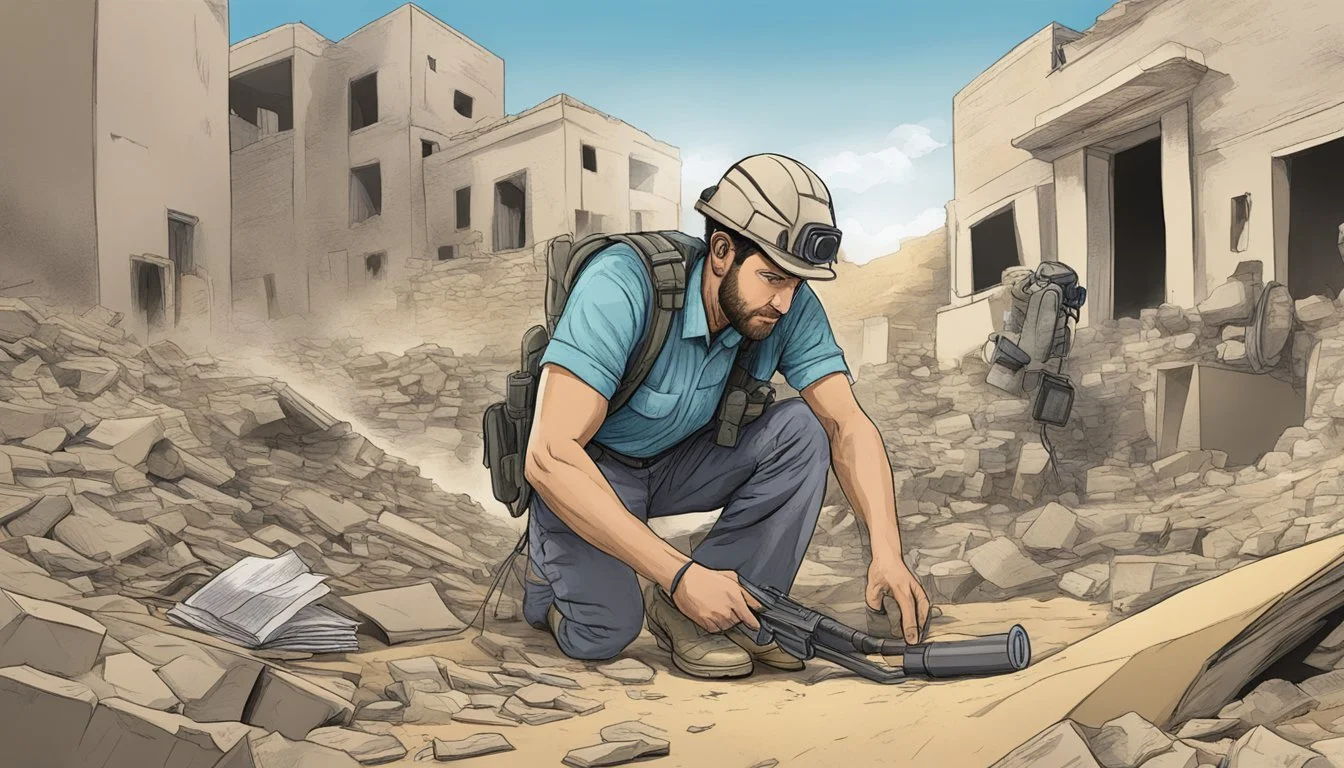Lara Logan: 60 Minutes' Benghazi Blunder Shakes CBS News Credibility
In 2013, CBS News faced a major credibility crisis over its coverage of the 2012 Benghazi attack. Lara Logan, a prominent correspondent for "60 Minutes," presented a report that contained significant factual errors and relied on a discredited source. The incident led to Logan's suspension and damaged the reputation of one of television's most respected news programs.
The controversial segment aired on October 27, 2013, purporting to offer new insights into the attack on the U.S. diplomatic compound in Benghazi, Libya. Logan's primary source, security contractor Dylan Davies, claimed to have been present during the assault. However, his account was later proven false, contradicting both his incident report and FBI statements.
CBS News initially defended the story but eventually retracted it after intense scrutiny from other media outlets and the public. The network conducted an internal review, which revealed serious flaws in Logan's reporting and fact-checking processes. This incident highlighted the importance of rigorous verification in journalism, especially when covering sensitive political topics.
Background of the Benghazi Attack
On September 11, 2012, a devastating attack on the U.S. diplomatic compound in Benghazi, Libya resulted in the deaths of four Americans, including Ambassador Chris Stevens. The incident sparked intense political debate and scrutiny of U.S. security measures abroad.
Timeline of Events
At 9:40 PM local time, armed militants launched an assault on the U.S. mission in Benghazi. The attack began with gunfire and explosions near the compound's main gate. Within 15 minutes, the attackers breached the perimeter and set fire to the main building.
Ambassador Stevens and Information Management Officer Sean Smith became trapped inside. Despite efforts by security personnel to locate them, both men died from smoke inhalation.
At 4:00 AM on September 12, a second attack targeted the CIA annex. Two ex-Navy SEALs, Glen Doherty and Tyrone Woods, were killed by mortar fire while defending the facility.
U.S. reinforcements arrived from Tripoli at 5:15 AM, helping to evacuate all remaining American personnel.
Key Figures Involved
Ambassador J. Christopher Stevens played a crucial role in U.S.-Libya relations. He had extensive experience in the region and was respected by many Libyans for his support during their 2011 revolution.
Glen Doherty and Tyrone Woods, both former Navy SEALs, were working as security contractors. They bravely defended American lives during the attack.
Sean Smith, a State Department information management officer, was also killed in the initial assault on the compound.
The attackers were later identified as members of Ansar al-Sharia, an Islamist militia group with ties to Al Qaeda. Their leader, Ahmed Abu Khattala, was captured by U.S. forces in 2014 and convicted of terrorism charges in 2017.
60 Minutes' Report on Benghazi
On October 27, 2013, CBS's "60 Minutes" aired a segment on the 2012 Benghazi attack. The report quickly became controversial due to its reliance on a flawed eyewitness account and subsequent fallout for the program and its correspondent.
The Role of Lara Logan
Lara Logan, a respected journalist for CBS News, led the Benghazi report. She conducted interviews and narrated the segment, which aimed to provide new insights into the attack on the U.S. diplomatic compound. Logan's reputation as a war correspondent lent credibility to the story.
Her involvement extended beyond reporting. She played a key role in vetting sources and shaping the narrative. Logan's commitment to the story was evident in her passionate defense of the report when questions first arose.
The Flawed Eyewitness Account
The report's centerpiece was an interview with Dylan Davies, a security contractor who used the pseudonym Morgan Jones. Davies claimed to have been present during the Benghazi attack, offering a firsthand account of the events.
His dramatic narrative included scaling a 12-foot wall of the compound and encountering one of the attackers. Davies also stated he had seen the body of Ambassador Christopher Stevens in a hospital.
These claims formed the backbone of the "60 Minutes" report. However, they later proved to be fabrications. Davies had given conflicting accounts to his employer and the FBI, stating he was not at the compound during the attack.
Production and Broadcast
The Benghazi segment underwent CBS's standard vetting process. Producer Max McClellan worked closely with Logan to develop the story. Executive Producer Jeff Fager approved the final cut for broadcast.
"60 Minutes" aired the report as an important exclusive. It featured dramatic reenactments of the attack alongside interviews with Davies and others. The segment received significant promotion from CBS leading up to its broadcast.
Viewers were presented with what appeared to be a groundbreaking investigation into a controversial event. The report seemed to offer new evidence that challenged the official narrative of the Benghazi attack.
Initial Reactions to the Report
Initially, the "60 Minutes" Benghazi report garnered praise from conservative critics who had long questioned the Obama administration's handling of the attack. Many viewed it as vindication of their concerns about security failures and the response to the incident.
Media outlets widely reported on the segment's revelations. The story quickly gained traction, with politicians citing it in calls for further investigation into Benghazi.
However, questions about Davies's credibility soon emerged. Journalists and government officials began pointing out inconsistencies in his account. These doubts led to increased scrutiny of the entire "60 Minutes" report and its vetting process.
Fallout from the Report
The flawed Benghazi report on "60 Minutes" led to significant consequences for CBS News and correspondent Lara Logan. Criticism mounted quickly, prompting an internal review and disciplinary actions.
Criticism and Red Flags
Media observers and rival news organizations swiftly pointed out issues with the report. The Washington Post and New York Times identified inconsistencies in the account of the key witness, Dylan Davies.
His claims about his actions during the Benghazi attack contradicted official records and his own incident report. This discrepancy raised major red flags about the credibility of the entire story.
Critics also questioned why "60 Minutes" failed to disclose that Davies' book was being published by a CBS-owned imprint. This omission further eroded trust in the report's objectivity.
CBS's Internal Review
CBS News launched an internal review led by Al Ortiz, the executive in charge of standards and practices. The investigation found serious deficiencies in the reporting and vetting process.
Key findings included:
Failure to properly vet Davies' account
Inadequate fact-checking of his claims
Overlooking contradictions between Davies' "60 Minutes" interview and his incident report
The review concluded that these lapses resulted in a deeply flawed segment that misled viewers. It highlighted the need for stricter adherence to journalistic standards.
Public Apology and Leave of Absence
In response to the internal review, CBS News took decisive action. Lara Logan appeared on "CBS This Morning" to issue a public apology. She acknowledged the errors and stated, "We were wrong. We made a mistake."
CBS News chairman Jeff Fager announced that Logan and her producer, Max McClellan, would take leaves of absence. This move underscored the gravity of the situation and the network's commitment to accountability.
The duration of their leave was not specified, reflecting the significant damage to credibility caused by the flawed report. CBS News also implemented changes to prevent similar errors in the future.
Investigations and Revelations
CBS News launched an internal review of the flawed Benghazi report on "60 Minutes" after serious concerns emerged about its accuracy. The investigation exposed critical lapses in the editorial process and raised questions about source credibility.
Review of Dylan Davies' Statements
Dylan Davies, a key source for the report, provided conflicting accounts of his actions during the Benghazi attack. His statements to CBS differed significantly from those given to his employer and the FBI. Simon & Schuster, set to publish Davies' book, pulled it from circulation due to these discrepancies.
The internal investigation revealed that "60 Minutes" failed to properly vet Davies' claims. CBS News did not obtain or review the FBI report that contradicted Davies' televised account.
Sources and Verification
The review exposed flaws in the show's fact-checking procedures. "60 Minutes" relied heavily on Davies' account without sufficient corroboration from other sources.
CBS News did not verify key details with the State Department or other official channels. The team overlooked readily available information that could have raised red flags about Davies' credibility.
The investigation highlighted the importance of rigorous source verification, especially for high-profile stories.
The Discussion of Truth and Misinformation
The Benghazi report sparked a broader conversation about journalistic integrity and the spread of misinformation. Media experts criticized CBS for rushing to air without thoroughly vetting the story.
The incident underscored the challenges of reporting on complex geopolitical events. It highlighted the need for news organizations to balance timeliness with accuracy.
CBS News implemented stricter editorial guidelines following the incident. These changes aimed to prevent similar errors and restore public trust in their reporting.
Impact and Implications
The flawed Benghazi report on 60 Minutes had far-reaching consequences for CBS News, Lara Logan, and the journalism industry. It raised questions about media ethics, drew reactions from political figures, and affected public trust in news reporting.
Media Ethics and Responsibility
The incident highlighted the importance of thorough fact-checking and source verification in journalism. CBS News faced criticism for not properly vetting the main source, Dylan Davies, whose credibility was later questioned. This oversight raised concerns about the network's commitment to accuracy and ethical standards.
The blunder reignited debates about the balance between breaking news and ensuring factual integrity. Media experts emphasized the need for news organizations to prioritize truth over sensationalism.
Reactions from Political Figures
Conservative critics initially praised the report, viewing it as validation of their concerns about the Obama administration's handling of the Benghazi attack. However, as the story unraveled, many distanced themselves from the flawed narrative.
Some politicians used the incident to question media bias and call for stricter journalistic standards. The controversy became a talking point in discussions about government accountability and media responsibility.
Effects on CBS and Journalism
CBS News faced a significant credibility crisis. The network implemented stricter vetting procedures and editorial oversight to prevent similar mistakes in the future. Lara Logan's reputation as a journalist suffered, leading to her temporary leave of absence.
The incident drew comparisons to the 2004 controversy involving Dan Rather and a disputed report about President George W. Bush's military service. Both cases underscored the potential damage to a news organization's reputation from inaccurate reporting.
The Benghazi report blunder served as a cautionary tale for journalists, emphasizing the need for rigorous fact-checking and the dangers of relying too heavily on a single source. It reinforced the importance of maintaining public trust through accurate and responsible reporting.



